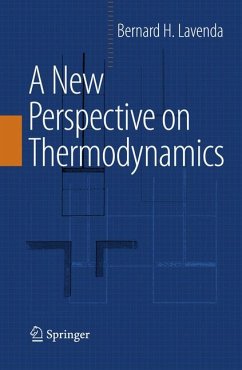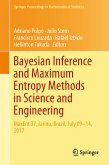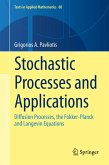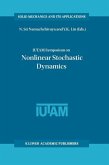A New Perspective on Thermodynamics will:
- Chronologically unravel the development of the principles of thermodynamics and how they were conceived by their discoverers
- Bring the theory of thermodynamics up to the present time and indicate areas of further development with the union of information theory and the theory of means and their inequalities. New areas include nonextensive thermodynamics, the thermodynamics of coding theory, multifractals, and strange attractors.
- Reintroduce important, yet nearly forgotten, teachings of N.L. Sardi Carnot
- Highlight conceptual flaws in timely topics such as endoreversible engines, finite-time thermodynamics, geometrization of thermodynamics, and nonequilibrium work from equilibrium free energy differences.
Dr. Bernard H. Lavenda is Professor of Physical Chemistry at Universita degli Studi di Camerino, Italy. He is recipient of the 2009 Telesio-Galeli Prize in Physics for his work on irreversible thermodynamics.
Dieser Download kann aus rechtlichen Gründen nur mit Rechnungsadresse in A, B, BG, CY, CZ, D, DK, EW, E, FIN, F, GR, HR, H, IRL, I, LT, L, LR, M, NL, PL, P, R, S, SLO, SK ausgeliefert werden.
"In six chapters, the author describes the fundamental principles of thermodynamics, starting from Carnot's works and ending with nonextensive thermodynamics. ... Throughout the whole book, the author shows the power of Carnot works. He always quotes citations and computations from these original works, then considering criticisms and possible extensions. Students and researchers involved in the fundamentals of thermodynamics will surely be interested by this historical presentation of the thermodynamics starting from the pioneering works by Carnot and going to some recent extensions." (Alain Brillard, Zentralblatt MATH, Vol. 1186, 2010)









